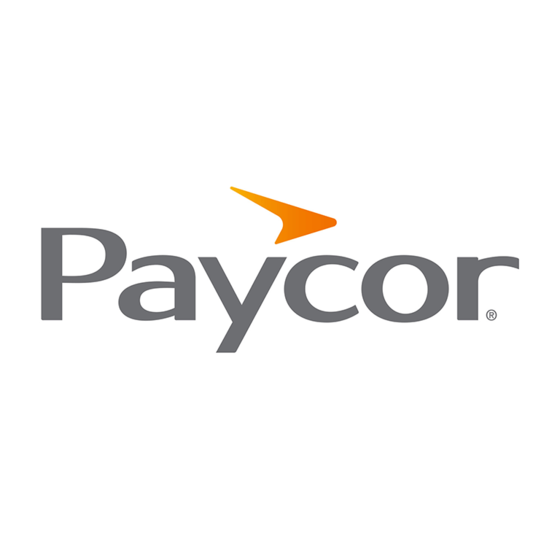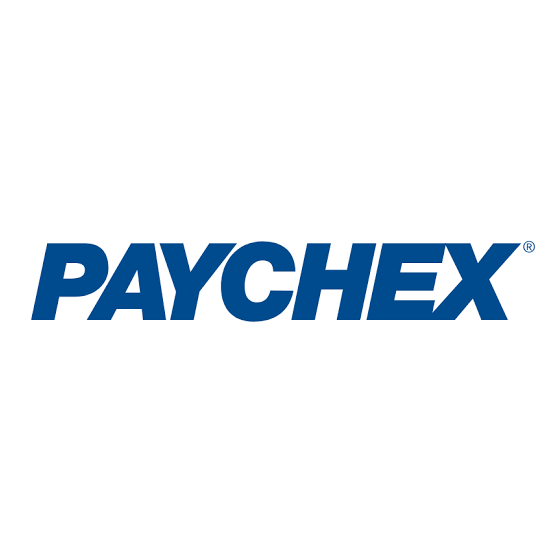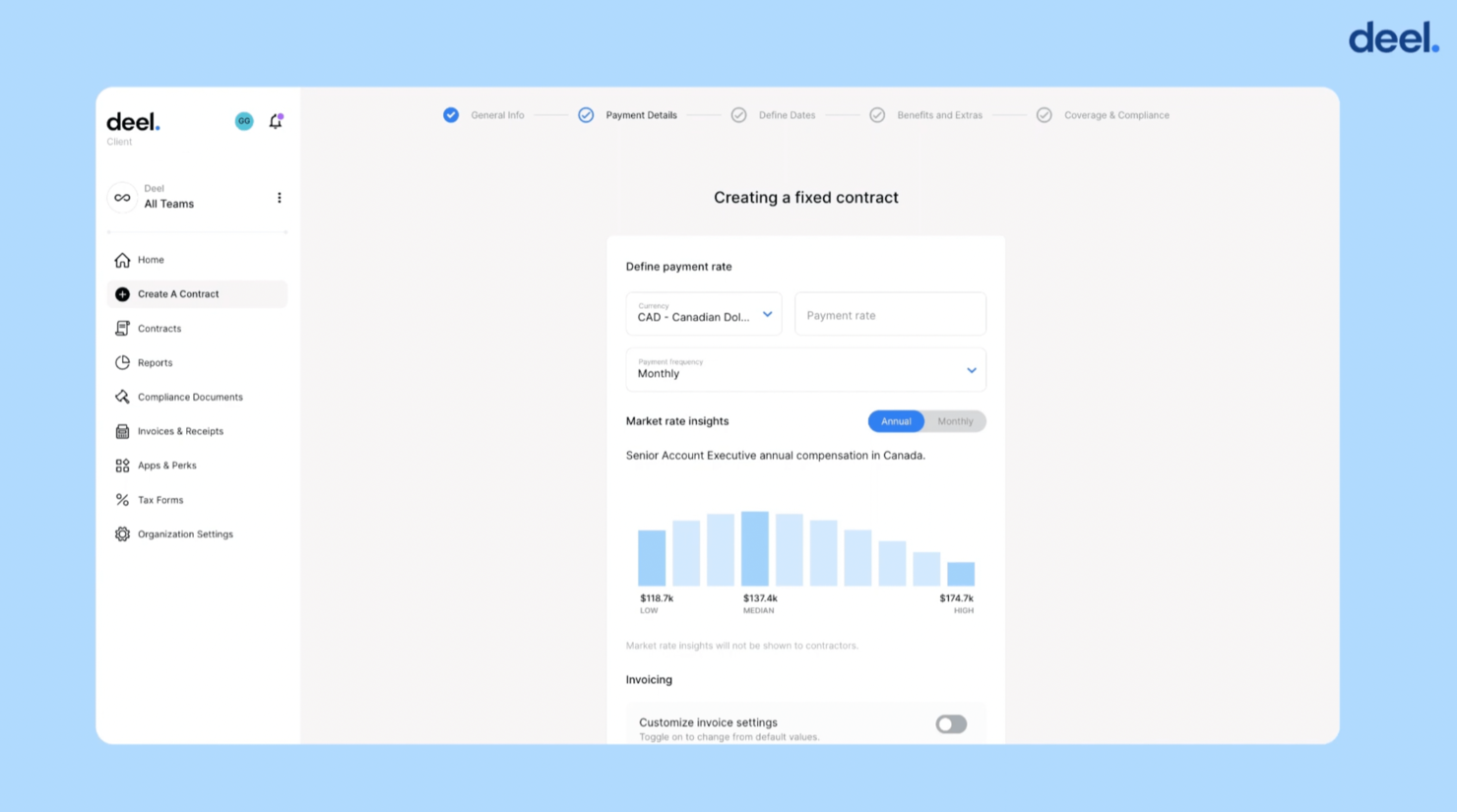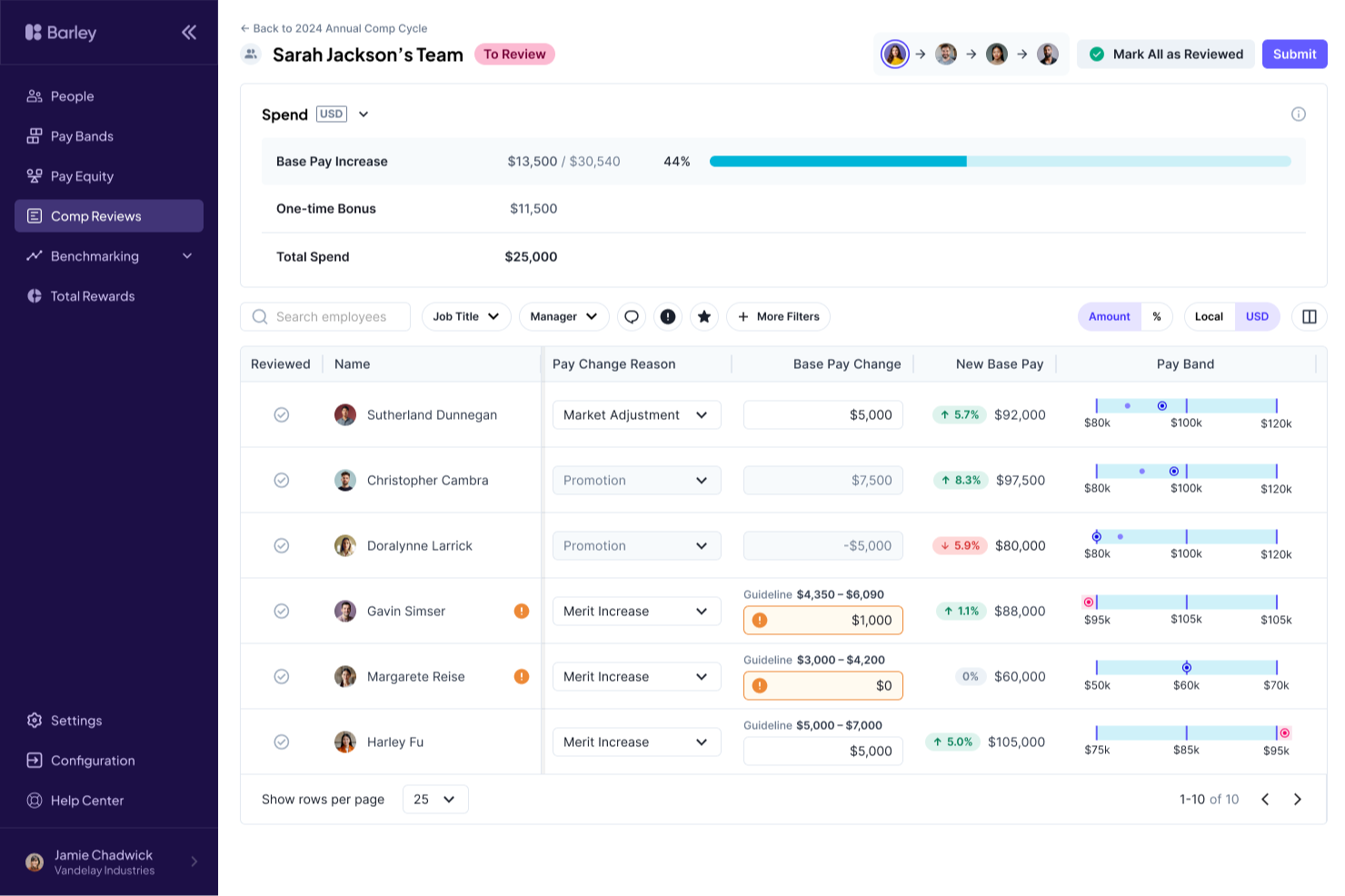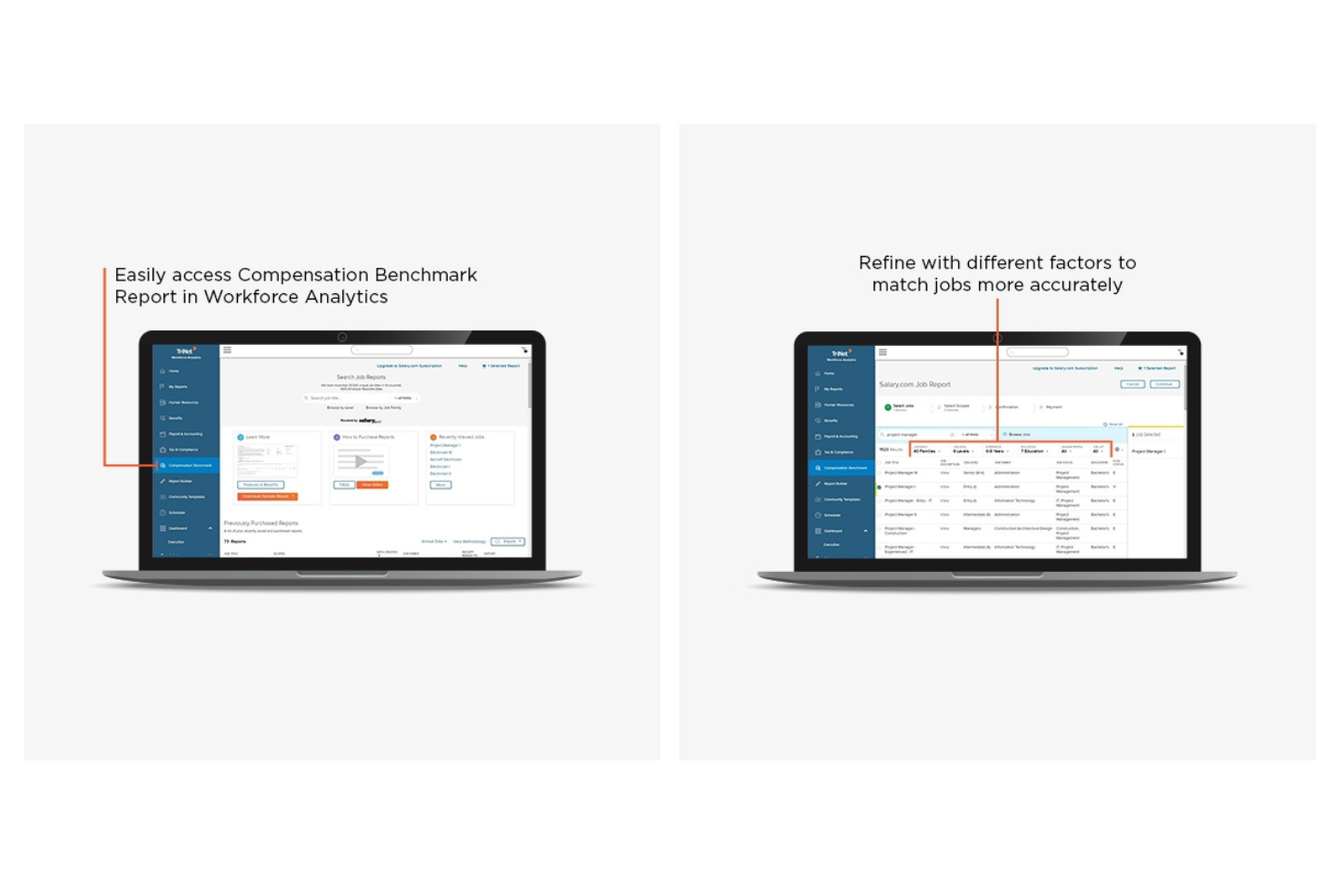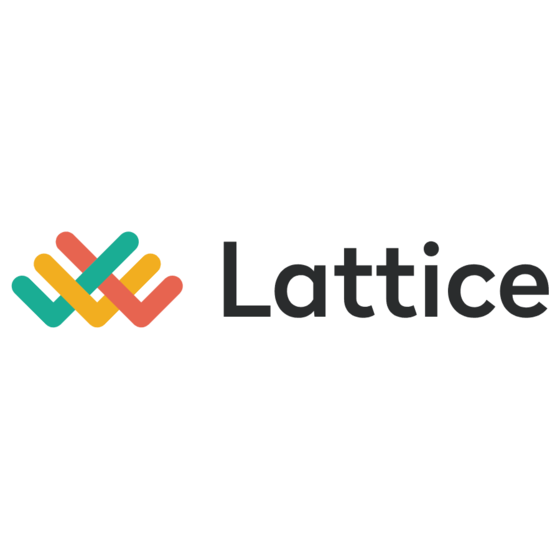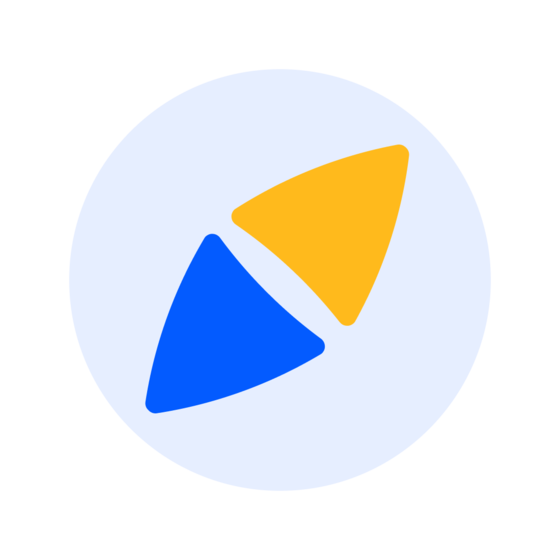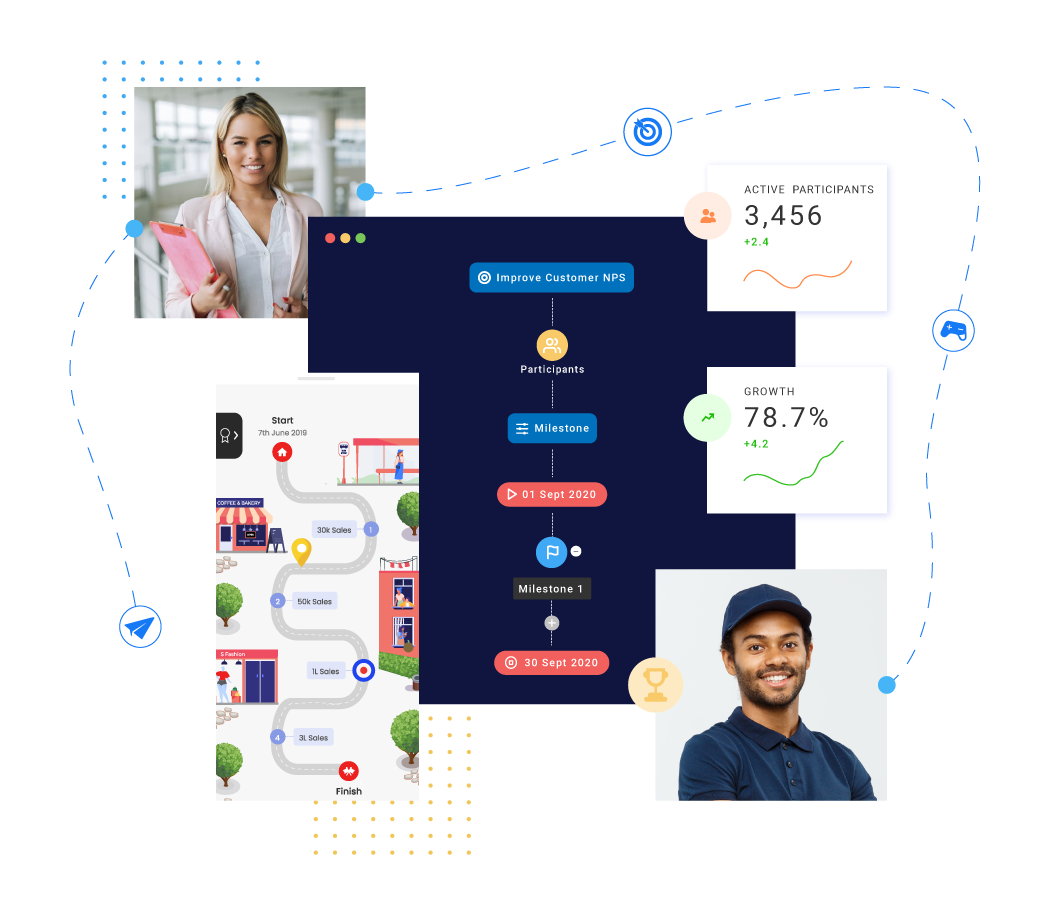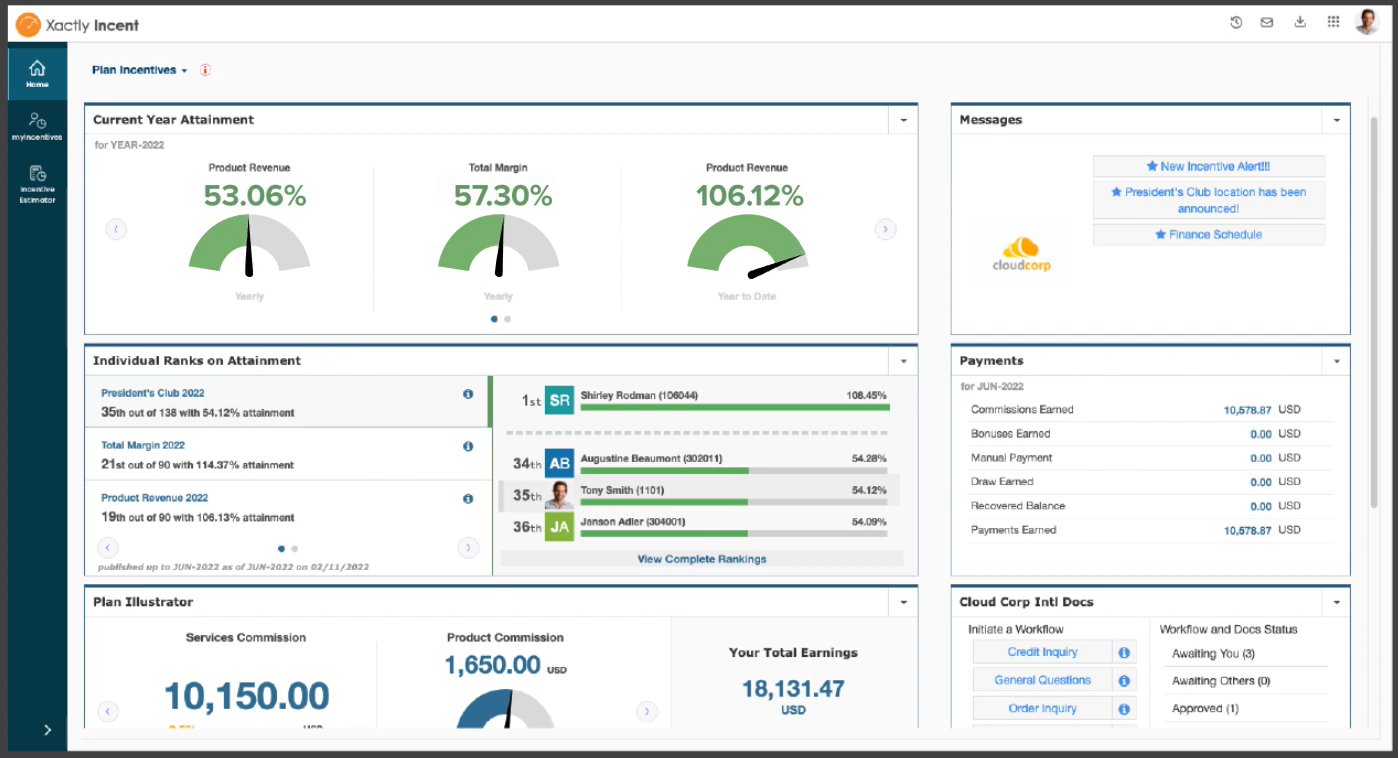10 Best Compensation Management Software List
Here's my pick of the 10 best software from the 20 tools reviewed.
Get free help from our HR software advisors to find your match.
With so many different compensation management software solutions available, figuring out which is right for you is tough. You know you want to ensure fair, equitable, and efficient handling of salaries, bonuses, and other forms of compensation—but now need to figure out which tool is best. In this post, I'll help make your choice easy, sharing my personal experiences using dozens of different compensation management tools with teams of all sizes, with my picks of the best compensation management software overall.
What is Compensation Management Software?
Compensation management software is a practical tool designed for businesses to manage and organize employee pay effectively. It automates the process of calculating salaries, bonuses, and other forms of compensation, ensuring accuracy and consistency.
The purpose is to help companies align pay with performance, adhere to budgets, and maintain competitive salary structures. Its use simplifies administrative tasks, supports strategic financial planning, and contributes to fair and transparent compensation practices, enhancing employee satisfaction and retention.
Overviews Of The 10 Best Compensation Management Software
Here’s a brief description of each top 10 compensation management software that made my shortlist. Keep reading to find additional bonus picks at the bottom of the list.
Deel
Best compensation management software for global salary benchmarking and international hiring
Deel is a comprehensive payroll service with a robust self-service function for HR professionals. It’s designed for global teams, letting you manage and keep track of employees and contractors around the world.
Why I picked Deel: Their service is easy to use and offers a wide range of features. The platform gives you a comprehensive overview of benefits, perks, and salary expenses. You can make use of their internal research tools to benchmark salary ranges in various countries, taking into account mandatory contributions like pension and healthcare.
Deel Standout Features & Integrations:
Features include international market salary insights, employer of record (EOR) or global payroll services, payroll & tax management, a dedicated customer service manager, access to international legal and tax experts, compliant employee contract templates, compliance monitoring tools, expense management, time tracking, analytics & reporting, and 24/7 in-app support. Deel is also SOC2-compliant and ISO 27001-certified, which means it meets international standards for data security.
Integrations are available with a handful of popular accounting and HR management systems that allow you to import and export HR data easily. Key integrations include Ashby, BambooHR, Bob, Greenhouse, NetSuite, QuickBooks, and Xero. They also have an Open API solution that allows developers to build their own interfaces on top of the Deel platform too.
Deel offers flat rate pricing per worker, as well as a free demo.
Pave is a comprehensive platform designed to revolutionize the way companies manage employee compensation. It offers workflows for salary and equity benchmarking, compensation planning, and total rewards to ensure fair and competitive compensation packages. By integrating seamlessly with various HR and payroll systems, Pave simplifies the complex process of compensation management, making it accessible and actionable for businesses of all sizes.
Why I Picked Pave: As an employee compensation management tool, Pave excels in providing transparent, data-driven insights that help companies make informed compensation decisions. It enables organizations to align their compensation strategies with market standards while promoting internal equity and employee satisfaction.
Pave Standout Features and Integrations
Features include real-time market data to ensure competitive compensation through up-to-date market insights, total rewards portals and visual offer letters for existing and future talent, offering customizable compensation models that allow companies to tailor their compensation strategies to fit their goals and meet employee expectations. This comprehensive approach provides businesses with the tools needed to manage compensation effectively, promoting fairness and transparency in the workplace.
Integrations include HRIS platforms like Workday, BambooHR, and Gusto; payroll systems such as ADP and Paychex; performance management tools like Lattice and 15Five; financial planning software; equity management platforms; compliance and tax software; and analytics and reporting tools.
Aeqium
Best compensation management software for collaborative compensation planning
Aeqium is a cloud-based employee compensation management software that gives people teams the flexibility to collaborate on their compensation planning process, including planning compensation across multiple geographies, currencies, pay bands, and job types. It's suitable for organizations of all sizes and is a comprehensive solution for managing employee salaries, variable pay, equity grants, and compliance reporting.
Why I picked Aeqium: Aeqium uses advanced integrations to help HR teams configure and prepare their compensation cycles by automating the gathering and validation of compensation-related data. This data, combined with their guided workflows for managers, helps organizations make more data-driven decisions. You can also use Aeqium to create customized plans for employees, determine pay equity, and simulate different compensation scenarios to assess their impact on the bottom line.
Aeqium offers agile, self-service functionality so HR teams can make changes to their compensation program themselves at any time rather than relying on tech support for changes. In addition, HR teams have complete control over how much or little compensation details are shown to managers, including data on salary, equity, and others. The platform even offers compensation analysis tools to help teams understand when employees are approaching events like a drop in equity vesting.
Aeqium Standout Features & Integrations
Features include collaboration tools, custom logic and permissions, multi-currencies, proofing & approvals, user-based access, budgeting, interactive offer letters, market data integration, and a total rewards portal for pay transparency.
Integrations include other HRIS, applicant tracking systems, payroll systems, and cap tables and stock systems like Carta.
Aeqium offers customized pricing upon request. They also have a freemium plan available.
Barley is a compensation management platform designed to assist companies in managing and planning multiple aspects of their compensation strategy. It stands out for its ability to facilitate proactive pay decisions by providing tools for visualizing pay bands, analyzing pay equity, communicating total rewards, and accessing global benchmarking data, which supports informed and equitable compensation planning.
Why I picked Barley: The software combines real-time data and analytics capabilities that enable people leaders and managers to make informed pay decisions. What makes Barley different is its user-friendly interface and features that support data-informed compensation management across planning, analysis, and communication.
Barley Standout Features & Integrations
Standout features include Global Benchmarking Data (powered by Mercer). This allows people teams to use clear visualizations to compare their team’s salary data against industry standards or their own data source, which can also be uploaded into Barley. The Compensation Planning tool aids in budgeting and forecasting, helping to align employee compensation with company financial goals. There’s also the ability to set up robust guidelines for managers based on position in the pay band or the market, as well as performance ratings. Reporting and Analytics deliver reports for in-depth compensation strategy analysis. Additionally, Barley integrates with HRIS and ATS platforms to centralize data management and supports features like pay band visualization, compensation review processes, pay equity analysis, total rewards, and global benchmarking data.
Integrations include ADP Workforce Now, BambooHR, Ceridian Dayforce, HiBob, UKG Pro, BambooHR, Greenhouse, Lever, and Workable.
TriNet's HR software system is designed to help small to medium-sized organizations manage their core HR needs, including onboarding, payroll, benefits enrollment, applicant tracking, document management, and workforce analytics.
Why I picked TriNet: Their Compensation Benchmark feature, part of its workforce analytics module, automatically pulls industry salary benchmarking data directly from Salary.com. This is helpful as you can run custom analytics using this data to ensure your salary ranges stay competitive against changing market rates.
TriNet Standout Features & Integrations:
Trinet also excels in their workforce analytics capabilities. You can use their software to track all the key metrics that matter, including your headcount, turnover rates, employee tenure, new hires, and terminations. You can also customize their dashboard to track other analytics and key performance indicators that are unique to your business too.
Integrations are available with Assembly, Bob, ChartHop, Compt, Greenhouse, Hyperproof, Lattice, Sage Intacct, QuickBooks, and many others.
Pricing details are available upon request.
Best compensation management software for pay equity analysis tools
Decusoft Compose is a comprehensive compensation, incentive, and total rewards management software. Their cloud-based software is easy-to-use and purposefully designed to mimic a spreadsheet-based experience many users are familiar with, yet with more advanced functionality.
Why I picked Decusoft Compose: Their solution not only simplifies the management of complex variable pay programs including merit-based bonuses, equity, long/short term incentives, carried interest, and deferrals but also provides enhanced analytics of your data. Diversity, equity & inclusion (DEI), pay equity, and people analytics are all simple to measure, report, compare, and visualize. Compose is easy to use, tailored to your unique needs, and SOC-2 compliant.
Decusoft Compose Standout Features & Integrations:
Features include compensation planning, budgeting & forecasting tools, a wealth of compensation planning models (bonus + equity, bonus only, bonus with deferral, equity award, exceptional impact, financial demo incentive, sales bonus, merit + bonus + equity, merit only, etc.), data dashboards, salary benchmarks, DEI & pay equity analysis tools, and employee performance & merit calibration tools.
Integrations are available with a handful of human resource information systems (HRIS) or other HR management systems including ADP, Oracle HCM, SAP, UKG, and Workday.
Decusoft Compose offers customized pricing upon request and a free demo.
Lattice provides a comprehensive product suite to help you manage employee compensation, performance, and engagement. It combines various HR tools into one easy-to-use interface, helping you streamline your HR processes.
Why I picked Lattice: Because it's an add-on to the performance, OKR, and goals platform, this compensation management software helps ensure that pay is directly connected to employee performance. Users can create and manage workflows for how pay is determined and adjusted, keeping processes consistent and clear for managers and employees alike. Benchmarking data is included to help you make informed decisions about pay.
Record keeping is simplified, as the platform stores employee compensation history and allows you to set salary bands. You can see how your compensation strategy lines up with business goals and budgets. The software also helps you craft employee-centric communications to help people understand how their pay is determined.
Lattice Standout Features and Integrations
Features include benchmarking data, bonus and equity management, raise guidance, multi-level approval flows, customizable performance review templates, OKR and goal tracking, and 360-degree feedback.
Integrations include ADP, BambooHR, Google Workspace, Humaans, Jira, Microsoft Suite, Okta, Rippling, Salesforce, Slack, UKG, Workday, and Zenefits, among others.
Best compensation management software for gamified sales incentive programs
Xoxoday Compass is an automatic sales incentive compensation platform that accelerates sales through competition-based challenges and performance-based bonuses. Their software automates the entire incentive process using pre-set key performance indicators (KPIs) combined with engaging game templates, rules, and conditional logic.
Why I picked Xoxoday Compass: You can design and launch gamified sales incentive programs that will help your sales teams stay engaged and productive, including target-based challenges, milestone achievements, or through an internal team race competition. Xoxoday Compass also offers real-time visibility into performance, tracks commission information and incentive plan details, and processes incentive payments.
Xoxoday Compass Standout Features & Integrations:
Features include a library of gamified sales incentive program templates (target-based, competition-based, cascading, or special structures), live scorecards, a public score leaderboard & achievement feed, an earning tracker, one-click payments, automation, action triggers, nudges, business simulations, predictive analytics, and data insights.
Integrations are available with popular CRM systems, including Freshdesk, Freshsales, Google Sheets, HubSpot, Leadsquared, Pipedrive, Salesforce, and Zoho CRM.
Xoxoday Compass has a progressive pricing structure that decreases your average price per user as you add more users to your account. They also offer a free demo.
Xactly
Best compensation management software for offering incentives that drive performance
Sales teams come in different forms and sizes, and so do their compensation plans and benefits. Xactly Incent is an incentive compensation management software designed to continuously monitor sales teams so that HR professionals can develop compensation strategies that motivate them to achieve top performance.
Why I picked Xactly Incent: Their compensation planning platform comes with 17 years of proprietary data that links pay with sales performance. This data, which was collected across many different industries, has been aggregated and anonymized. I included Xactly Incent in this list because you can leverage this data to help you build competitive incentive-focused compensation plans to boost your sales quotas and retain your top sellers.
Xactly Incent Standout Features & Integrations:
Features include compensation data, compensation & payout planning tools, commission tracking, sales forecasting tools, advanced benchmarking data, reusable plan components, pay curves, visualizations, workflow automations, analytics, real-time reporting, and a mobile app.
Integrations are available with Salesforce, Microsoft Dynamics, and NetSuite, and other CRM, ERP, and HCM software solutions.
Xactly offers customized pricing upon request along with a free demo.
Assemble
Best compensation management software for transparent total compensation
Assemble is a compensation planning platform with a focus on transparency and equality. Their software can help you prepare compensate packages for your employees in a way that drives performance and builds trust within your organization.
Why I picked Assemble: Their compensation planning software is focused on helping organizations develop transparent compensation plans that are fair, equitable, competitive, consistent, and explainable.
This modern, proactive approach to developing a compensation plan within these parameters helps to ensure that traditionally underrepresented and underpaid demographics are paid equally when compared to their peers. To simplify this process, Assemble also automatically analyzes pay equity across your workforce data for you, and includes a special module focused on DEI (diversity, equity and inclusion).
Assemble also includes a unique illustrative offers feature that helps organizations communicate the full value of an employee offer, which may include additional forms of compensation above their base salary, such as merit-based bonuses, equity plans, or tenure-based increases.
To ensure a positive user experience, their illustrative offers are sent directly from Assemble, drawing candidates into a digital portal that’s been customized with your own company branding. This positive portrayal of their total compensation package can make a big impact on candidates’ employee experience, before they even accept their offer.
Assemble Standout Features & Integrations
Features include salary benchmark data, salary ladders and compensation bands, easy-to-digest visualizations, illustrative employee offers, pay transparency and compliance tools, historical record keeping & audit logs, workflow automation, tools to manage job architecture and job descriptions, multiple currencies, DEI tracking, and a white-labeled employee portal.
Integrations are available with 60+ HR software solutions, including Alexis HR, Applicant Stack, Ashby, Breathe, Breezy, CATS, Cornerstone, Factorial, HR Cloud, JazzHR, Jobvite, Lano, Lever, Recruitee, Teamtailor, UKG Pro, Workable and others.
Assemble offers customized pricing upon request, as well as a free demo.
The 10 Best Compensation Management Software Comparison Chart
This comparison chart summarizes basic details about each of my top compensation management software selections. You can view pricing details and the availability of free trials or demos side-by-side to help you find the best software for your budget.
| Tools | Price | |
|---|---|---|
| Deel | Flat rate user pricing, with free HR tool for businesses | Website |
| Pave | Upon request | Website |
| Aeqium | Pricing upon request | Website |
| Barley | Pricing upon request | Website |
| Trinet | Pricing upon request | Website |
| Decusoft Compose | Pricing upon request | Website |
| Lattice | From $11/user/month | Website |
| Xoxoday Compass | Pricing upon request | Website |
| Xactly | Pricing upon request | Website |
| Assemble | Pricing upon request | Website |

Compare Software Specs Side by Side
Use our comparison chart to review and evaluate software specs side-by-side.
Compare SoftwareOther Options
Here are a few other options that didn’t make the best compensation management software list. I didn’t have room for a full review for each of these but they are still worthy of consideration:
- ChartHop
Best compensation management software for automating eligibility rules
- PaveAI
Best compensation management software for managing compensation bands at scale
- Spiff
Best compensation management software for commission-based sales teams
- MarketPay by Payscale
Best compensation management software for tracking global compensation volatility
- CaptivateIQ
Best compensation management software for customer-facing teams
- Varicent ICM
Best compensation management software for automating incentive programs for enterprise organizations
- Xoxoday Plum
Best compensation management software for sending bonus payouts internationally
- Comprehensive
Best compensation management software for replacing spreadsheets
- Justworks
Best compensation management software with 24/7 expert support
- Ceridian Dayforce
Best compensation management software for integrating talent and workforce management, payroll, and benefits
How I Selected the Best Compensation Management Software
Wondering how I selected the best compensation management software for this top 10 list? I'm happy to explain my detailed approach.
First, I evaluated and compared a wide range of compensation management platforms with positive user ratings. Next, I examined each system in greater detail using the selection criteria below.
Selection Criteria
Here's a short summary of the main evaluation and selection criteria I used to determine the best compensation management software systems for this list:
Usability:
Compensation planning, in general, can be complex, especially with a wide range of employee positions and skill sets. That's why it's important that the system you choose scores high in usability and creates a positive user experience (UX) for all your internal stakeholders who will access it.
To assess a system's usability, I examine its user interface (UI) to understand how its menu and key features are organized. I want to get an understanding of how easy-to-use their system is, or whether you need to drill down endlessly to access the details you need.
Competitive Features:
With the war for top talent never going away, you need a compensation system that offers features to help you stay competitive. The crux of this is the database upon which the compensation software rests. You want to invest in a system that includes salary benchmarking data. This data, sourced globally by trusted salary survey providers, will help you ensure your existing and future staff are compensated fairly, at current market rates.
Other modern features that fall into this category are: pay equity tools, DEI (diversity, equity, and inclusion) monitoring systems, and compensation bands that allow you to update employee salaries at scale.
Incentive Programs:
Depending on your industry, incentive programs may be a big part of your employee compensation plan. This is especially true for businesses focused on sales or customer service. If this applies to your industry, you'll definitely want a software system that can automate the incentive process for you.
Sales or incentive compensation programs include tools to automatically track employee productivity as they strive to meet their goals or key performance indicators (KPIs). Often incentive programs include engaging gamification features too, to further motivate your employees to perform.
Software Integrations:
It's important to ensure that the compensation management system you choose integrates with your existing HR software solutions. The most important integrations to confirm are whether it will link to whichever HR management and/or payroll system you're using. If you're looking for a more specialized solution for handling employee salaries, you might also want to consider integrating with a dedicated payroll software to ensure a seamless HR tech stack.
If your compensation program includes sales-based incentives, you'll also want to ensure it links up with popular sales management and CRM systems too.
I've noted key software integrations for each system in this list. However, as you're doing your research, make sure you take the extra time to confirm the integrations you need are available.
Value for Price:
It's logical for the price of a compensation management tool to vary based on the depth of its features. While I always try my best to consider how appropriately a software system is priced, it was a little bit of a challenge for this software set.
Most of the software systems in this list only offer pricing upon request. However, you can still get a sense of the depth of their plans by visiting their websites for more details.
People Also Ask
Still trying to wrap your head around compensation management software and how it works? Here are some answers to frequently asked questions that should clear things up for you further:
What is compensation management software?
Compensation management software is a type of HR software that simplifies the process of developing and maintaining compensation packages for employees. These systems generally fall into two types of sub-categories: those that are standalone compensation-focused products, and those that are integrated modules within other systems.
Most of the software providers in this list fall into the former category, as standalone HR solutions with robust tools to manage employee salaries across the entire employee lifecycle. These SaaS systems typically offer a deeper set of features than those you would find within an HR management system. They also offer many integrations to help you manage your employee data efficiently.
In contrast, many HR management systems (including HRIS, HCM or HRMS providers) do have compensation planning modules too, sometimes for an added price. These modules work alongside their other core HR modules for talent management, employee engagement, and payroll, and centralize all your pay-related data in one place.
How does compensation management software work?
Compensation management software acts as a central place where compensation planning, policies, strategies, data, and reports are stored all those authorized to access them.
Compensation management programs are built on top of databases of benchmarked salary data. This allows the programs to populate the proper salary range for any given position based on key parameters like the job title, geographic location, years of experience, credentials required, and so on.
The data behind these programs are sourced globally by trusted salary survey providers that request current salary information from employers and employees alike. The data is then aggregated and anonymized into a large pool of salary data, which forms the backbone of these compensation tools.
The software also streamlines common HR processes through automation and reduces the need for HR employees to complete repetitive, low-value tasks.
What main features are included in compensation management software?
Here’s a summary of the main features you can expect to gain by investing in compensation management software:
- Dynamic pay policy tools that segregate types of employees across departments, teams, skill sets, geographic locations, and any other relevant variable (i.e., compensation bands)
- Salary benchmarking data sourced globally, so you can ensure your pay rates always remain competitive despite global salary volatility
- Total compensation management and presentation tools (e.g., illustrative or visual offer letters for new hires)
- Data insights that monitor pay equity across your workforce demographics (e.g., DEI metrics tracking)
- Incentivization features that link compensation decisions with performance management, productivity, or goal-based data
- Automation and other workflow simplification tools that reduce manual processes
- Transparent pay policies and self-service functionalities that answer common employee queries about salary
What are the different types of compensation?
The best employee compensation planning software provides HR teams with a way to illustrate their total compensation packages to their employees. The term “total compensation” refers to financial benefits, perks, and incentives in addition to an employee’s base salary.
The most common types of additional compensation (aside from salary) include:
- bonuses (usually performance or merit-based),
- commissions or sales target incentives,
- tenure-based, long-term incentives (e.g., a years of service award or bonus)
- profit sharing programs,
- company equity,
- stock options,
- health benefits,
- retirement fund contributions, and
- non-monetary items like gifts and other physical perks.
For more details on how to craft an effective compensation program, read our article on creating an effective compensation philosophy.
How does compensation management software help employers?
The way an organization compensates its employees will directly impact employee satisfaction rates. When a company fails in basic compensation planning, it risks losing talent and scaring away potential hires. Up to 52% of candidates say that competitive compensation is the most attractive element of a job offer.
Compensation management software helps organizations structure and standardize the way they pay employees across different teams and departments. It ensures that no one is underpaid or overpaid and creates an environment of fairness where individuals feel recognized for their efforts. This, in turn, helps organizations retain their existing talent and attract new hires in a competitive talent marketplace.
Compensation management tools can also reduce the costs of managing employee compensation as HR employees are able to spend their time doing high-value tasks while the software takes care of repetitive jobs.
Tools that ensure equity and fairness reduce the risks associated with non-compliance with labor laws, while helping establish a favorable relationship with labor unions and employee representative groups. In addition, when employees feel that they are fairly compensated and the company can provide a rationale for its compensation structure, employees are likely to feel more motivated to do their best at work, increasing productivity and profits.
Related Read: What Is Time Tracking And Why Is Time Tracking Important?
Additional Resources
Looking for some other ways to attract and retain high-quality talent? Here's a collection of our best resources to help you develop top-notch compensation and engagement practices within your organization:
- Best Employee Perks Programs to Automate Rewards
- Best Talent Management Systems
- 10 Novel Employee Wellness Program Ideas to Attract and Retain Top Talent
- Best Employee Engagement Software
- Mind the Pay Gap, a podcast with Robin Turnill from Pivot HR Services
- Best Performance Management Tools Every HR Pro Should Know
- 20 Types of Employee Benefits You Should Know
- Cost of Employee Benefits
Before you go, I also recommend signing up for our weekly People Managing People newsletter. That way, you'll receive the latest insights from top thinkers in the HR space straight into your inbox.


